How to get to sleep when you're stressed or anxious
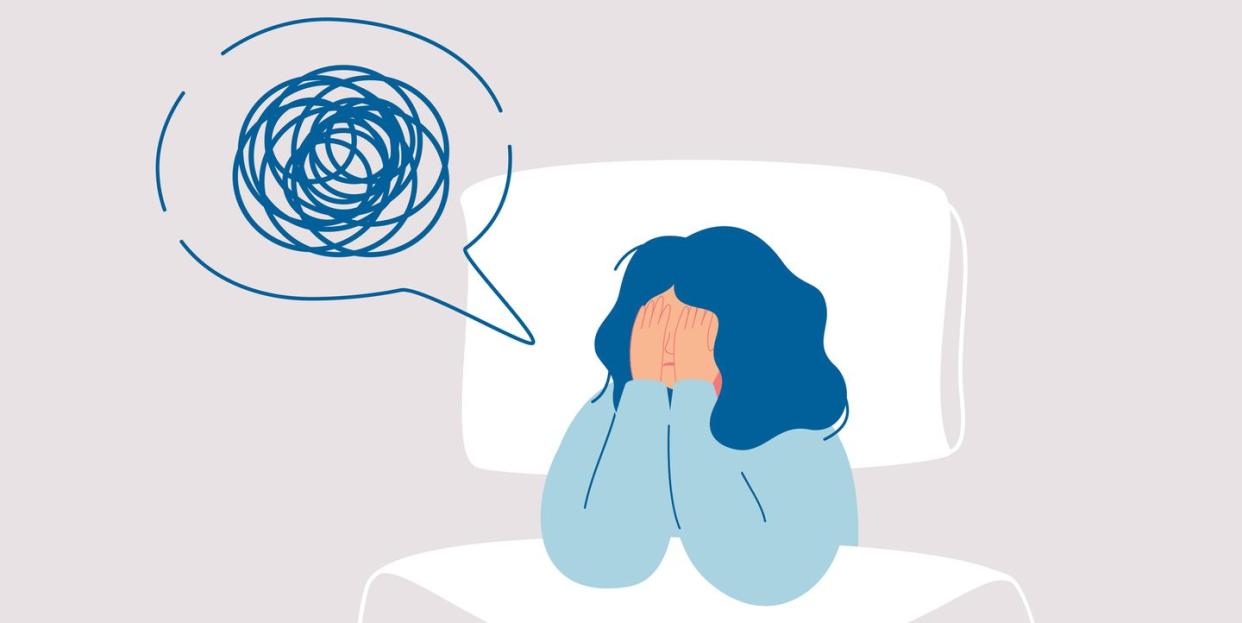
It's no secret that feelings of stress and anxiety can keep us up at night. But instead of tossing and turning (and counting down the hours until our alarm goes off), trying solutions that quieten the mind and bring you into a more relaxed state could help you nod off.
In aid of Stress Awareness Month, Bensons for Beds’ resident sleep expert, Dr Sophie Bostock, has shared her best practices on how to get a better night’s sleep if you're feeling stressed and anxious.
Dr Bostock says: “Many of us struggle with sleep when we’re experiencing an acutely stressful situation. This might be work stress, a tricky relationship, a bereavement or a significant life event.
"Under stress, people often describe not being able to switch off their racing minds. You may find that you fall asleep ok, but then wake up in the early hours of the morning, wide awake.
"The good news is that stress doesn’t have to keep you up at night. Some people seem to sleep soundly, no matter what is going on in their lives. Sleep reactivity is the name given to describe the extent to which stress disrupts sleep, a difficulty falling or staying asleep. Genetics influence our sleep reactivity, the nature of the stress and life experiences will all play a role, but we can learn strategies to decrease our vulnerability to stress at night.”
Keep reading to learn more about stress and anxiety, as well as three key techniques for helping you get to sleep...
What is stress?
In short, the term ‘stress’ refers to anything which provokes our ‘fight or flight’ response. It's an age-old response that helped our ancestors deal with danger.
Dr Bostock explains: "When the brain detects a threat, the body releases adrenaline, which speeds up the heartbeat, increases blood pressure and triggers the release of the stress hormone, cortisol. Cortisol stimulates the release of glucose into the bloodstream to fuel the body for action.
"Stress also influences the way we think and feel. We narrow our attention towards the threat; it takes on disproportionate importance, and it’s harder to step back and see the big picture.
"The emotional centres of the brain become more sensitive to negative events when we’re already feeling stressed. We also tend to become more anxious, irritable and prone to low moods.”
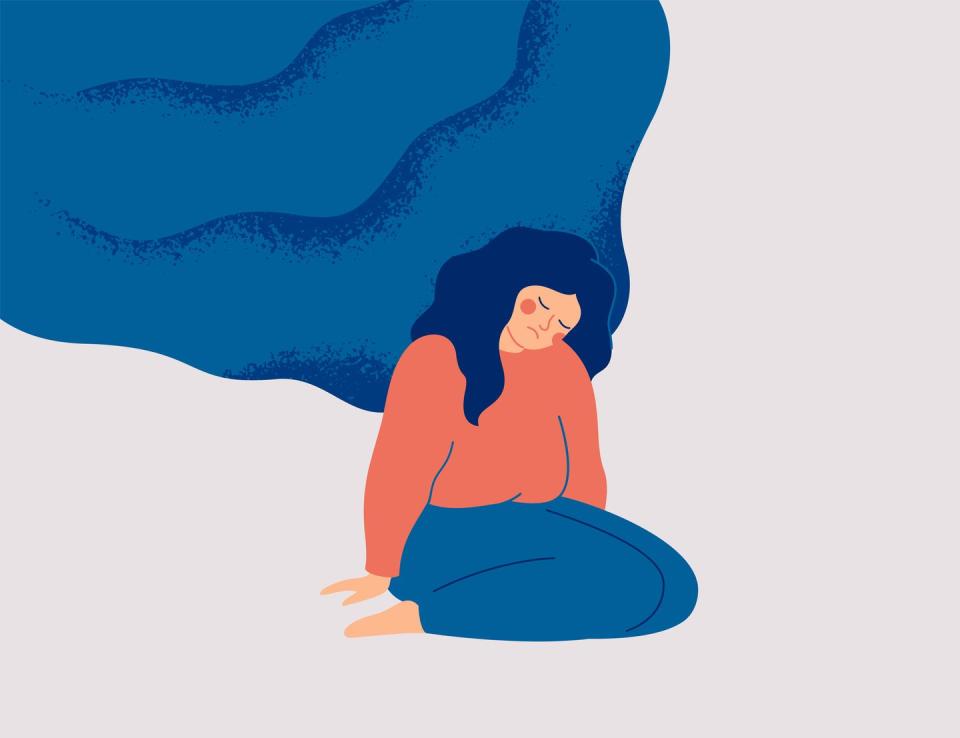
What causes stress?
Unlike our ancestors, most of the stress we experience nowadays is not caused by anything physical, but rather psychological.
"Psychological stressors come in many forms," adds Dr Bostock. "It’s not just about threats to our safety, or our loved ones’ safety; any situation which is new, unpredictable, or makes us feel out of control, or overwhelmed, can trigger a stress response.
"Discrimination or fear of exclusion or a loss of status (such as financial pressures) can be another stressor. The big problem with many psychological stressors is that there may be no clear end to them. If a predator runs away, you can relax, but if you’re worried about money, or health problems, the stress can last for months at a time.”
What are the signs of stress?
Our reaction to stress is individual and depends on whether it’s acute (short-term) or chronic (long-term). Acute stress is characterised by the ‘fight or flight’ stress response. You might feel this way before public speaking or if you narrowly avoid an accident.
Signs of acute stress include:
Sweating
Racing heartbeat
Tense muscles
Stomach upset, indigestion or heartburn
Altered appetite
Rapid breathing
Narrowing of attention and focus towards the threat
"When you are stressed for a long time, some of these physical signs are less obvious, and you might not consciously ‘feel’ stressed," adds Dr Bostock. "It could be that the brain and body have simply learned a pattern of increased arousal (so-called ‘hyperarousal’) because you’ve been under stress for so long."
Signs and symptoms of chronic stress include:
Weight gain or weight loss
High blood pressure
Changes to the menstrual cycle
Sexual dysfunction
Constipation or diarrhoea
Rashes or itchy skin
Infections or illness
Changes in mood - greater impatience, irritability, anxiety or depression
Difficulty making decisions
A feeling of being overwhelmed
A worsening of physical or mental health conditions
Difficulty sleeping, either falling asleep or waking up during the night.
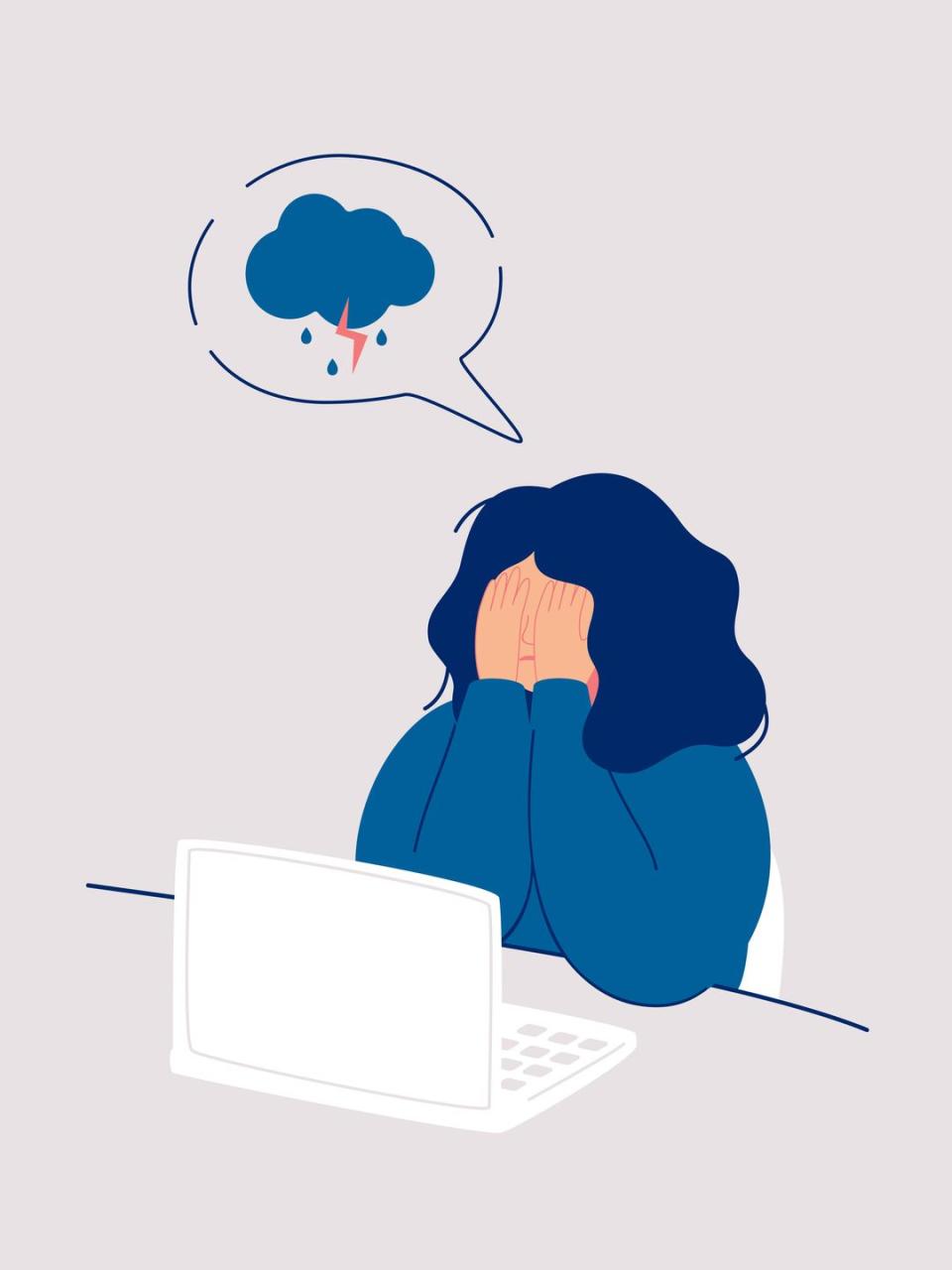
How is stress related to anxiety?
“Anxiety is the name given to the way we feel when we are worried, tense or afraid. We feel anxious about things that are about to happen, or that we think could happen in the future. Anxiety can be a natural emotional response to a stressful situation," explains Dr Bostock.
"While anxiety is a natural way to respond when we are genuinely under threat, it can also be a problem if anxiety is excessive and interferes with the way we live our lives.
"Anxiety disorders are a family of mental health disorders which are characterised by excessive and persistent worry. Examples include generalised anxiety disorder, social anxiety disorder (related to social situations), phobias and panic disorders. People suffering from anxiety disorders will typically perceive life to be more stressful because their brains are in a constant state of high alert.
"Chronic exposure to stress also makes people more prone to emotional disorders, including anxiety disorders, and depression. It’s as if we lose some of our emotional elasticity under stress, and it’s easier to become stuck in patterns of anxious thinking, or low mood.”
Why do stress and anxiety affect sleep?
It mainly comes down to a hormone called cortisol, something we produce more of when we're stressed. Cortisol is useful for fuelling action, however at bedtime, it prevents us from relaxing and calming down.
Therefore, stress keeps your brain and body more alert than normal. It takes us longer to fall asleep, and because sleep is lighter, we’re more likely to be woken by noise, movement or changes in temperature.
However, Dr Bostock adds that it's not only cortisol affecting our sleep: "Stress can also cause us to change behaviour in ways that are unhelpful for sleep, such as doing less exercise, relying on alcohol to relax, working late or taking long naps to recover.”
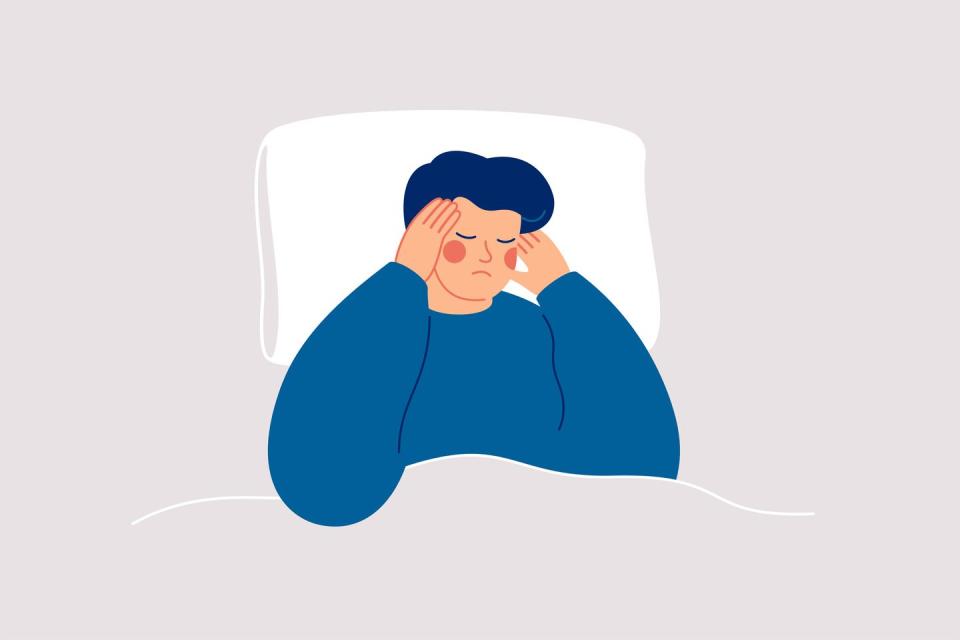
3 ways to ease stress for a good night’s sleep
Sometimes it’s possible to tackle stress by resolving the source of stress - for example, speaking to your manager about managing your workload or finding additional help with caring responsibilities.
However, sometimes it’s impossible to avoid the source of stress, for example, if you’re struggling financially or have been diagnosed with a chronic medical condition.
Dr Bostock says: "What you can do, is to learn tools to switch off the cortisol tap, and the associated hyperarousal, to promote a more restful night’s sleep.
"To flip the switch from stress to relaxation, we have to convince the brain that we are safe, and in control. To do this, we can either focus on relaxing physically or mentally. Our minds and bodies are interconnected, so relaxing our muscles will still relax our minds, and vice versa.
"Relaxation is a skill - the more often you practise, the more quickly and deeply you will be able to relax. It’s a good idea to practise for a few minutes during the day, as well as part of your wind down before bed.”
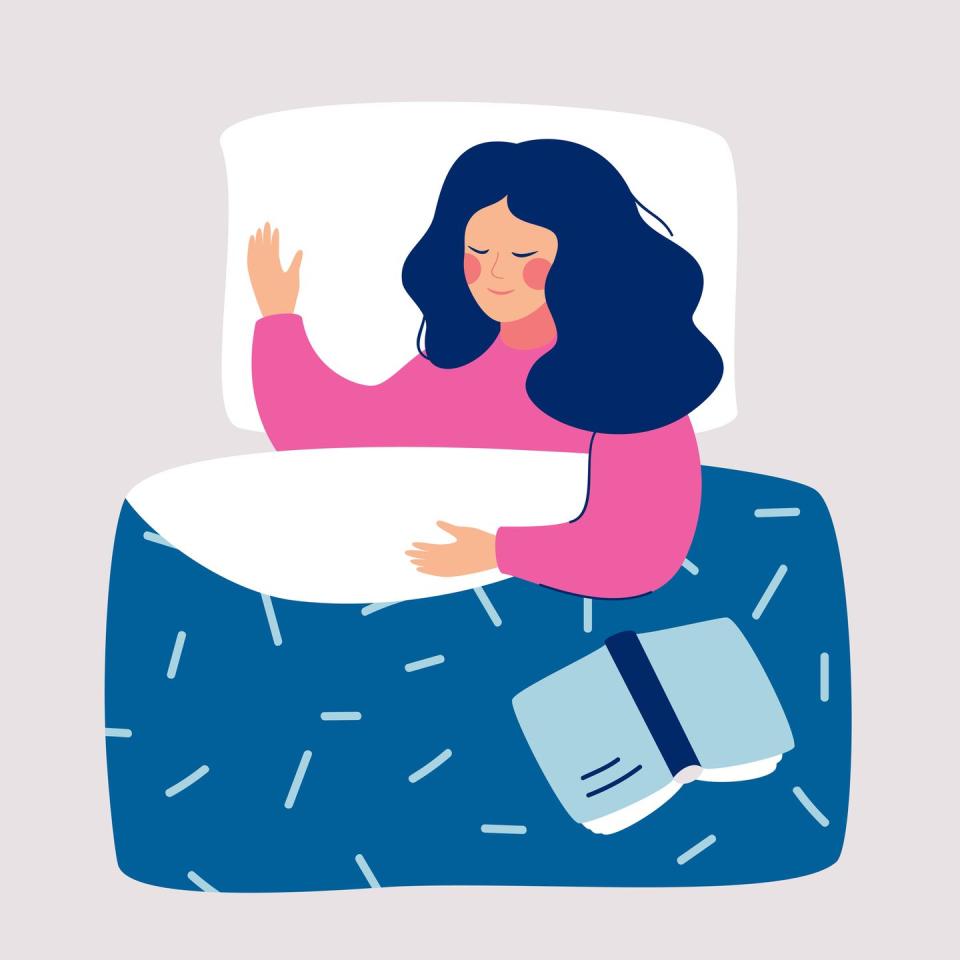
Technique 1: Box Breathing
When we feel we're in danger, our breathing tends to get faster as we prepare to fight or flee from a threat. Occasionally, it causes us to freeze up entirely. Because of this, it's important to find a way to calm our breath.
"Maintaining a slow, steady breathing rate helps to signal to the brain that we’re not under threat, and helps to drive the relaxation response," explains Dr Bostock. "There are many different breathing techniques you can try, and it’s worth experimenting with a few different exercises until you find an approach which has a calming effect on you."
To try box breathing, breathe in for a count of 4, hold that breath for a count of 4, breathe all the way out for a count of 4, and hold for a count of 4.
Set a timer for 5 minutes and aim to maintain this pattern. Over time you can build up to 20 minutes or more.
Dr Bostock adds: "If you’re lying down it can be helpful to keep one hand on your belly and one hand on your chest. Focus on making your belly rise and fall, rather than your chest. This means you are more likely to be using your diaphragm to pull the air all the way, deep into your lungs, which provokes the relaxation response.”
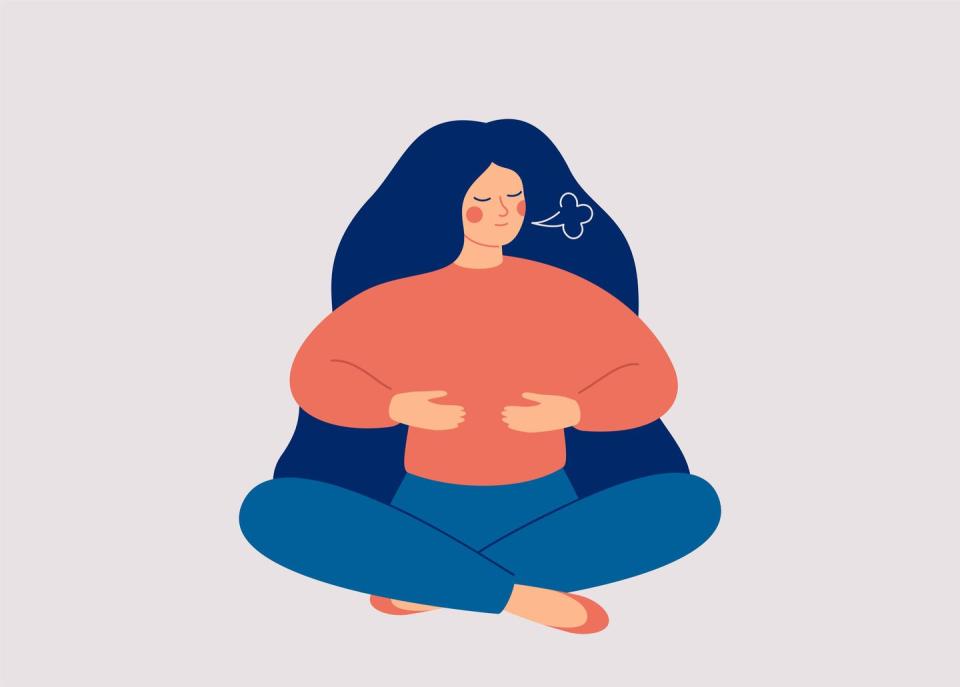
Technique 2: Creating positive imagery in our mind
If you need something which takes a little more of your mental focus, Dr Bostock recommends trying some positive imagery.
Close your eyes and picture an event or place that makes you feel relaxed. This might be a beautiful beach, mountain, lake, forest, or imaginary place.
Imagine that you’re the movie director of your perfect scene. Ask yourself: what you can see, what you can feel, what you can smell, and what you can touch?
You could picture yourself walking through every room in your perfect home, or imagine yourself on your favourite beach, watching the waves at sunset.
Dr Bostock adds: "You’re not trying to sleep - that’s important - you’re just going to enjoy visualising a happy place where you can feel calm and comfortable. The more often you can return to this safe place in your mind, the more easily you’ll be able to relax and unwind, and eventually, it could help you to fall asleep.”
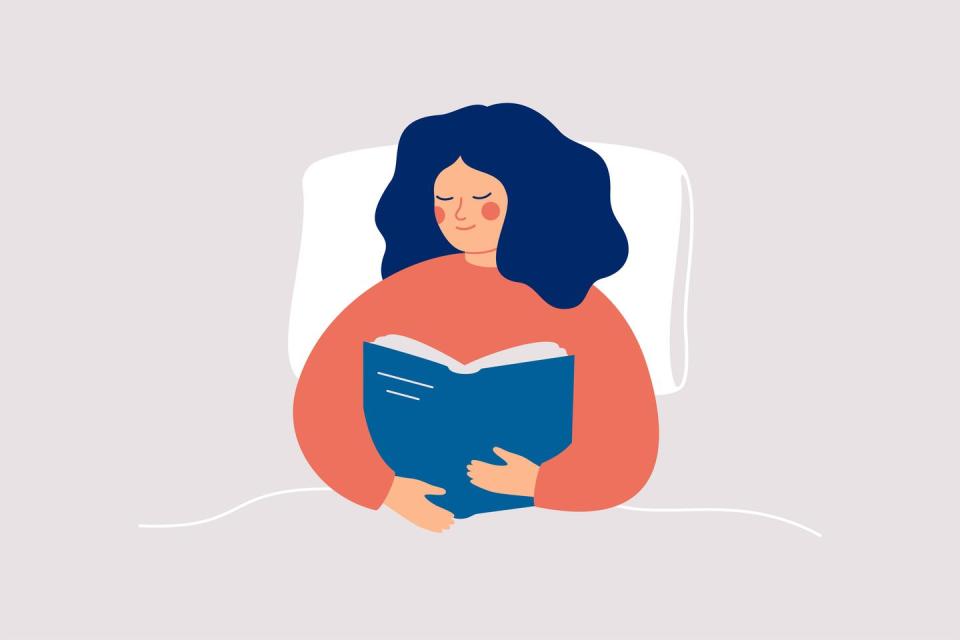
Technique 3: Putting the day to rest
If you’re plagued by a busy mind, one strategy Dr Bostock recommends is the habit of writing down some of your inner dialogue in advance of bedtime. Put aside 10-20 minutes for this exercise, perhaps at the end of the workday, or after dinner. Ideally, avoid doing this right before bed as this exercise will get you thinking.
Sit down somewhere you won’t be disturbed and grab a notebook.
Write a few bullet points about what has happened today. What went well? How did that make you feel? Has anything troubled you? Why was it difficult? What could you do differently next time?
When you’ve finished reflecting on the day, think about what’s coming up tomorrow. What are you looking forward to, and why? What’s your number one priority?
"The aim is to stop unnecessary thoughts whirring around your head. If the same thoughts pop into your head when you’ve switched out the light, you can tell yourself that they are on the page, and you don’t need to think about them any more," advises Dr Bostock. "If any urgent thoughts do come up in bed, keep your notebook and a pencil by your bed so that you can write them down, and then let them go.”
“We all encounter stressful situations sometimes," says Dr Bostock. "It is almost always easier to cope with stress when you discuss your feelings with a supportive friend, partner or family member. Sharing your feelings can stop them from building up under the surface, and make them easier to cope with."
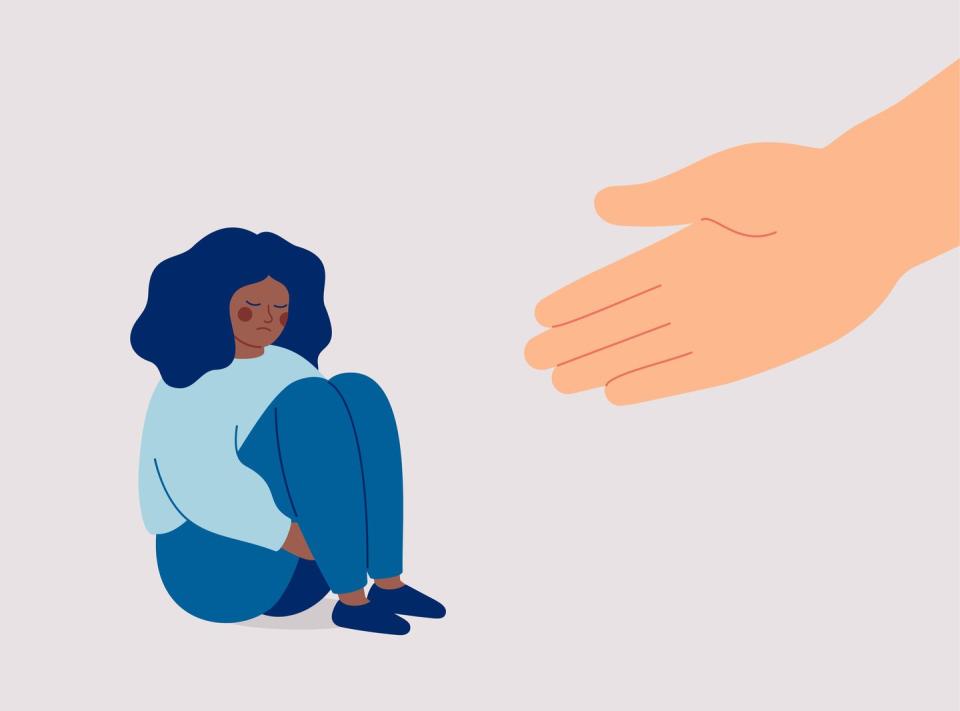
Dr Bostock adds: "While ‘stress’ is not a clinical disorder, if you’ve been struggling to cope with stress for some time, or if this seems to be getting worse, speak to your GP about it. They can discuss whether you have a mental health disorder which warrants treatment, or recommend some self-care steps to promote well-being. They may also suggest social prescribing, where you are referred to a supportive community group.
"Regular exercise and relaxation techniques can be very helpful for stress."
For more information about stress and how to manage it, take a look at the information provided by the mental health charity, Mind.
You Might Also Like

